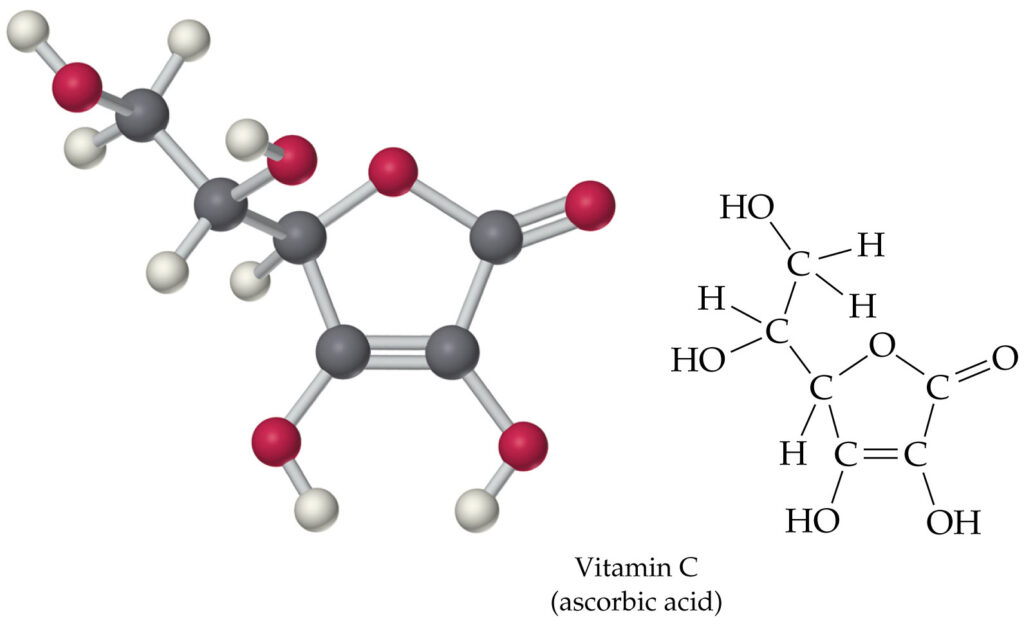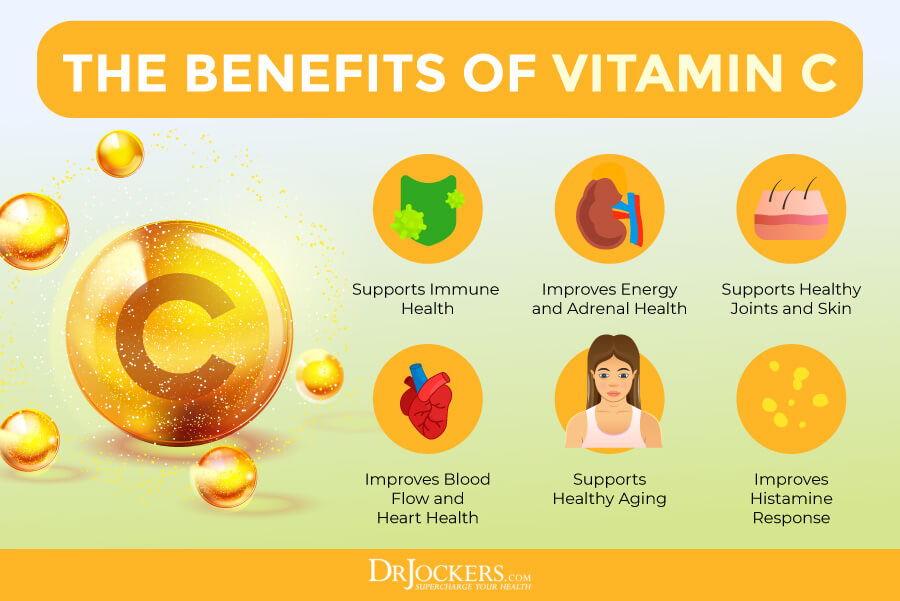By Evanthia Vasiliki Tagari,
Who does not remember their mom yelling at them to drink freshly-squeezed orange juice quickly, so we wouldn’t “lose” the juice’s vitamins? The answer is common, but not coincidental if one identifies the natural importance of the substances contained in the juice with the predominant vitamin C system, known to us, as stated by the study researcher Mark Moyad, MD, MPH, of the University of Michigan: “Vitamin C has received a lot of attention and justifiably. The more we study vitamin C, the better we understand how diverse our health protection is from cardiovascular disease, cancer, stroke, eye health, and general body immunity, with the aim of longevity”.
Vitamin C: Chemical structure and definition
Vitamin C, also known as L-ascorbic acid, is an organic compound of formula C6H8O6 in the form of a white solid in its pure form. It has good solubility in water giving mild acidic solutions and acts as a mild reducing agent. Vitamin C, due to its water solubility, is not stored in the body, so it is necessary to consume foods that contain it daily. Vitamin C occurs naturally in many foods such as peppers, cabbage, broccoli, oranges, strawberries, etc., while its deficiency is associated with various unpleasant effects on the body, with a typical example being scurvy. It is used as a food additive and as a dietary supplement for its antioxidant properties.

Beneficial properties of vitamin C in the human body
Consumption of vitamin C has been shown to show targeted activity in humans, offering it a set of beneficial properties as discussed below:
- Strengthen the immune system: Who would disagree with the fact that vitamin C helps strengthen our body? No one, since perhaps the most common benefit of vitamin C is the positive effect it has on the immune system. L-ascorbic acid has been found to protect against oxidative stress, enhancing the killing of germs, and minimizing the chance of tissue damage. Inadequate intake of vitamin C is associated with an increased rate of infections. For example, it has been found that taking vitamin C in cases of colds may not stop it, but it certainly helps the body recover faster.
- Improving brain function: High concentrations of vitamin C in the body have been found to be associated with increased brain function and cognitive ability. This vitamin achieves this purpose, as it contributes to the synthesis of neurotransmitters, which are responsible for sending signals from the brain to the rest of the body.
- Stimulation of collagen synthesis: Collagen is the most abundant protein in the body and plays a critical role in connective tissues, such as those found in our organs and of course in our hair, skin, and nails. The presence of a sufficient amount of vitamin C in the body, therefore, is necessary for its synthesis, while it has been proven that even its topical application is accompanied by wound healing and youthful skin.
- More efficient absorption of iron in the body: Iron supports proper growth, helps the body’s ability to supply oxygen throughout the body, and contributes to the production of certain hormones. Vitamin C has the advantage of interacting with other vitamins and minerals in the body, such as iron. Non-heme iron, which is the type of iron found in plants, can be difficult for the body to absorb, but consuming vitamin C at the same time as non-heme iron leads to better absorption.

How much vitamin C should I take daily?
In fact, in order to achieve visible results in the laboratory, the daily intake should reach around 500 mg of vitamin C per day. However, everyday life does not allow an average adult to consume such a large amount of fruits and vegetables during the day in order to reach these levels. Finally, according to the RDA, the intake of 75 mg for adult women and 90 mg for an average adult man is satisfactory so that the body can meet its required functional needs. Dietary supplements of this vitamin can also enhance its beneficial effects on the body.
Conclusion
Vitamin C has been known since 1912, while in 1928 it was isolated, and in 1933 synthesized in a laboratory for the first time. Since then, its healing properties for the body are unquestionable, while at the same time they are enhanced in every study. For this reason, vitamin C should not be missing from any diet plan aimed at a healthy and complete organism. And not to forget, eat your fruits, everyone!




